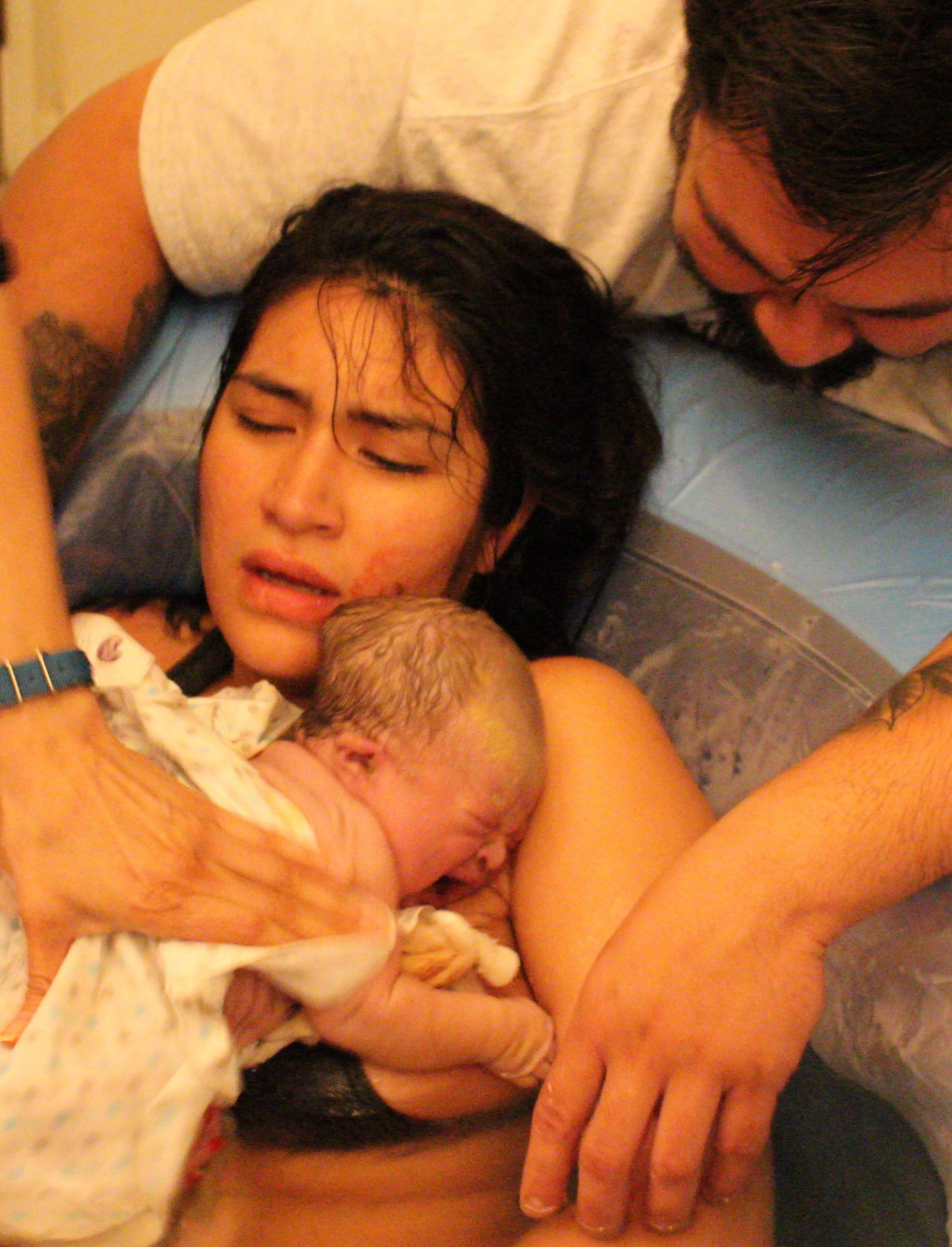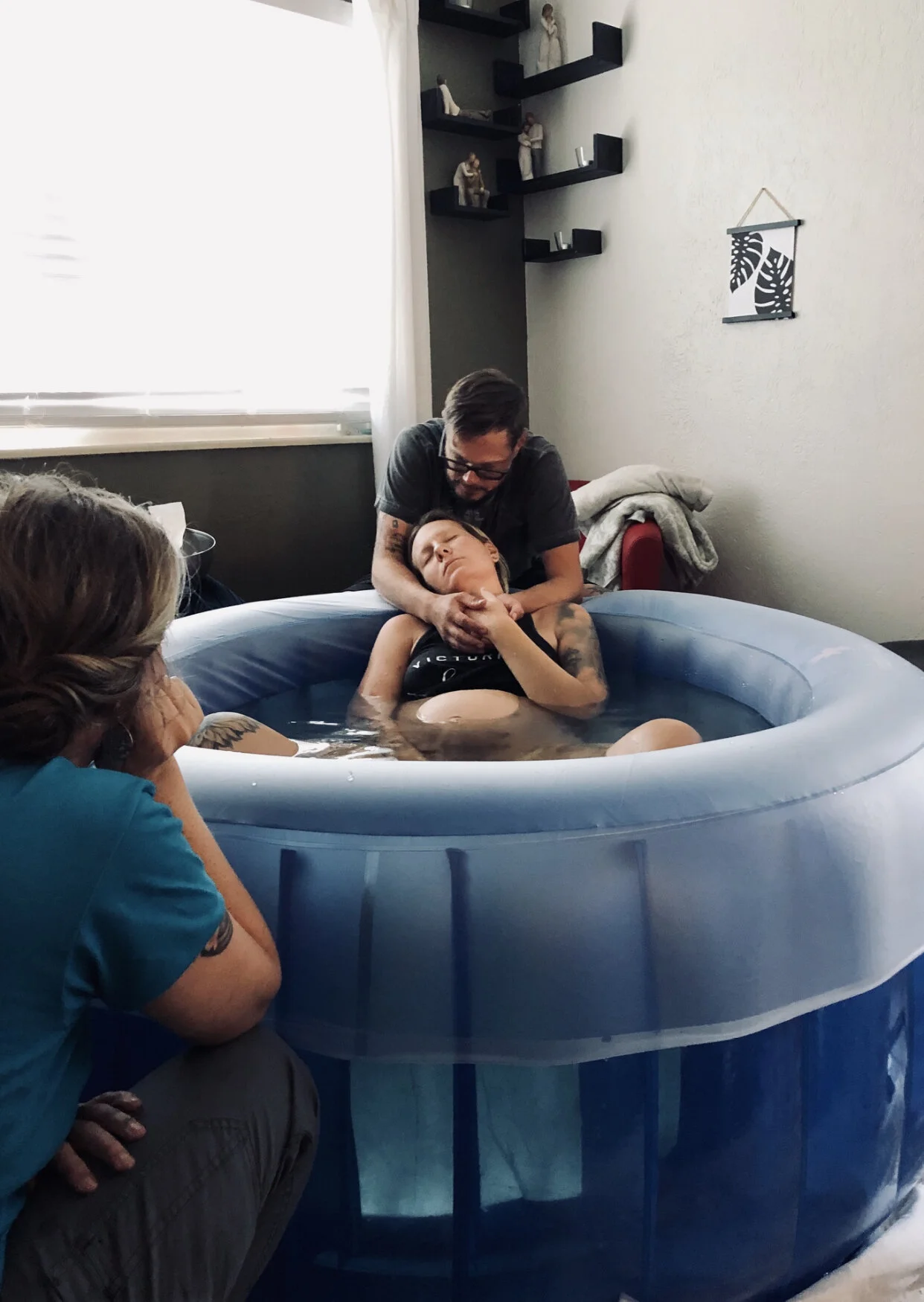If you are interested in switching to home birth we take late-transfer families.
Homebirth
Having a home birth is a big decision! A decision to take ownership of your body, your baby, and your birth. We hope to build a real, trusting relationship with our clients that leads to a positive and empowering birth, no matter what twists and turns the journey holds. We believe birth is natural, normal, and sacred and our care is aimed to nurture your body, mind, and spirit during this special time.
“All I wanted for my first pregnancy and birth was to be able to do something that women have done as long as humans have existed...a birth without all the fear, the sterile environment, the medical jargon and the disconnect between myself, my baby and the process of a portal opening. However, I truly got so much more while having Geneva as our midwife. I became a warrior; victorious from my first right of passage. I became a mother and I got an inch closer to reclaiming my humanity.” -KF





